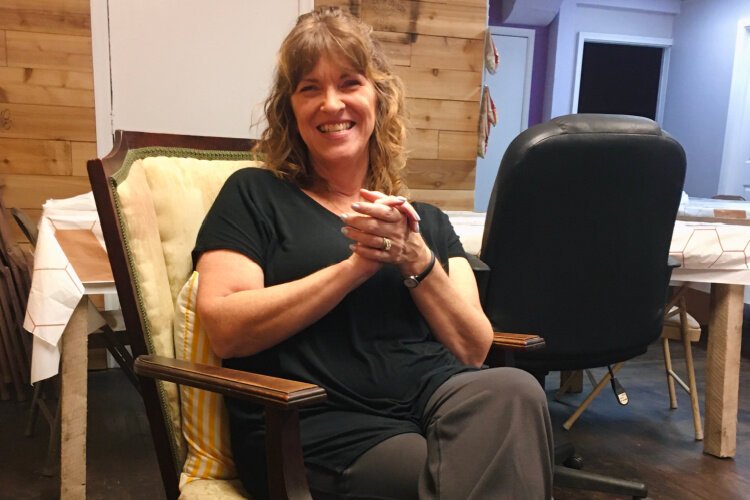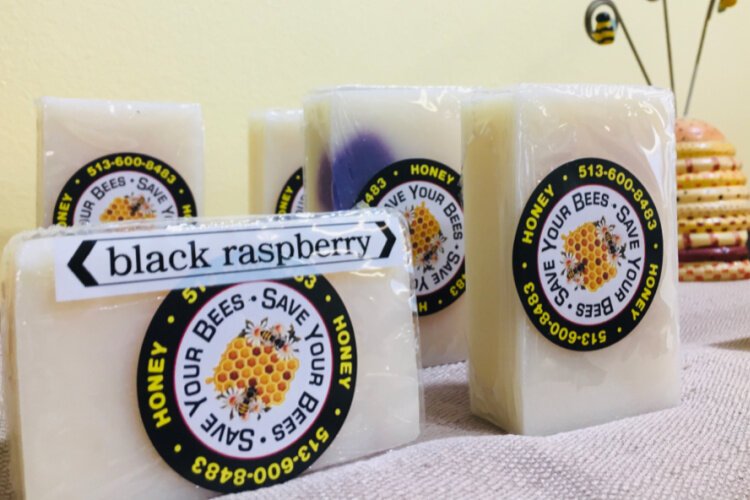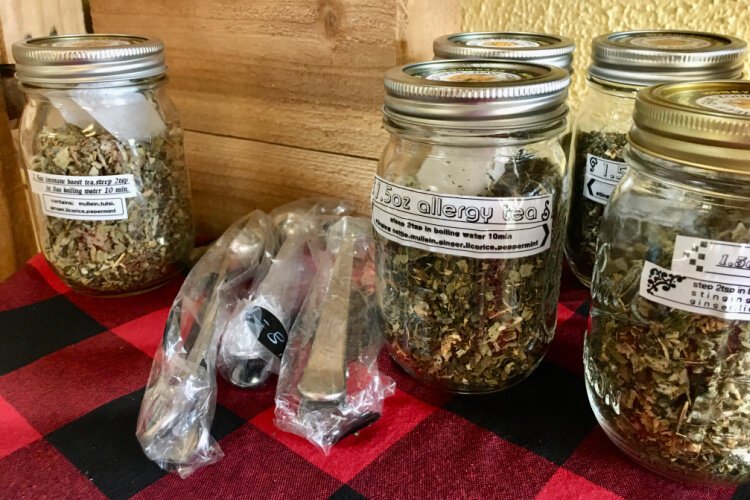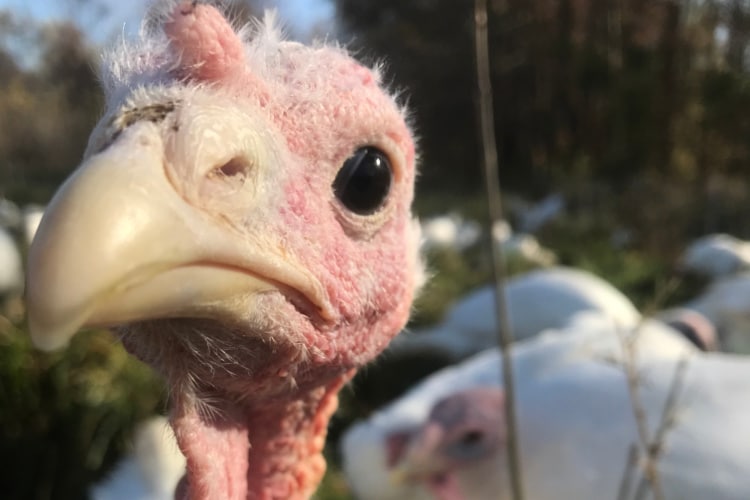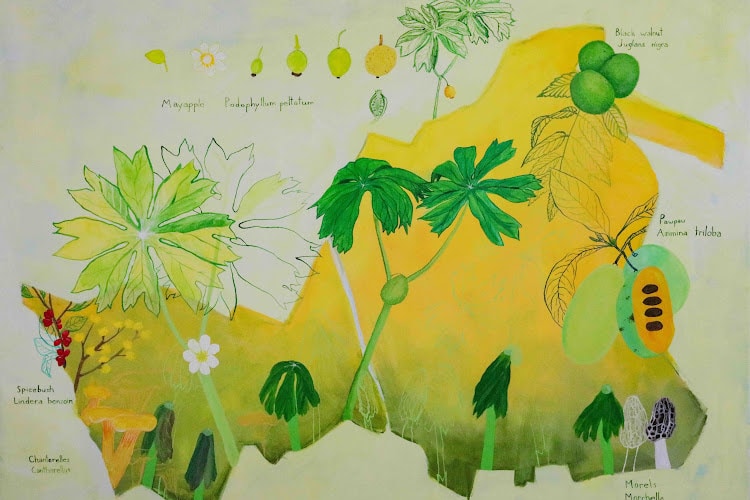Anderson’s Save Your Bees is abuzz with sweet activities
They offer a wide variety of honey, tea, and soap sourced from local hives.
Every year in Ohio, more than 1000 new hobbyists take up beekeeping. With the sweet incentives of honey production and helping the environment, it’s a venerable sideline commonly adopted by gardeners, culinary enthusiasts, or anyone looking for a fun and interesting outdoor project.
Patty Reed encouraged her husband to give it a try about seven years ago when he retired.
“I told him to go find a good hobby, because I wasn’t going to have him in the house 365 days a year,” recalls Reed with a laugh.
Luckily, a longtime friend and coworker who had been endeavoring with an apiary of his own since the 1970’s took Mr. Reed under his wing.
“He does the queen rearing, mating, selling the nucs, boxes — everything,” explains Reed.
“He started going over there every weekend, learning about the bees,” continues Reed. “Then he hooked up with another guy who was actually an Anderson Township police officer, and they bought a piece of property in Georgetown and started planting it and moving out beehives.”
It wasn’t long before both the Reeds found themselves stuck on the honey-honing hobby.
“The second year he actually got a little honey in and he asked me to help spin it … and that’s when I got hooked,” confesses Reed. “We had an old hand crank, and you have to hold it still, and my husband would crank it and I would hold it — and the smell … the smell of the honey when you spin it — that’s what got me. I tasted it and it was the best honey I had tasted since I was a little girl. That was it.”
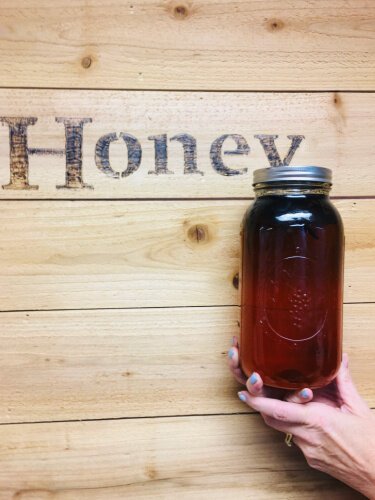
Reed fondly recalls the store-bought honey of her childhood as having pieces of the comb right in the jar that she and her siblings would use as chewing gum. “There was none of this fake honey like there is in the supermarket today. 80% of what you find on the shelves is corn syrup,” says Reed.
A night of brainstorming in October of 2019 quickly brought about a plan to open a market and learning center. That December, Save Your Bees set up shop on the corner of Salem and Sutton in Anderson Township.
Reed runs the shop on a daily basis. Her shelves are heavily stocked with jars of raw, local honey — some of it from Save Your Bees’ production farms in Georgetown and Oregonia, and others from neighboring apiaries in other nearby towns.
The wide variety of different types of honey is carefully procured, and each has distinct qualities based on the season and the plants made available to the bees during that time.
“I’ve got a beautiful Water White. It looks like a very pale domestic beer, but it tastes so airy and light and comb-y. And it takes a little extra work to do that,” advises Reed. “It’s a spring honey. Trees are the first food of the bees. So you have to switch that out before they start producing what’s known as clover honey.”
Save Your Bees also carries some handmade soaps, jewelry and other gift items, and hosts many workshops to teach enthusiasts about different aspects of the hobby — from box building to spinning, and everything in between. However, not all workshops revolve around the bees. Jewelry and soap making are just a couple others on offer.
Reed believes in building a sense of community among hobbyists, new and old. Teaching a class is a requirement for any apiarist whose stock is sold at the shop. Her spinning room, equipment, and expertise are available by appointment to community members for a small fee. She enjoys helping others catch the buzz of what homegrown honey is all about.
Each year in September, Reed also hosts a large event to raise awareness for a cause close to her heart. Lights of Hope aims to break the stigma surrounding opioid addiction.
Reed says she has seen too many lives destroyed by the tendency to hide these issues out of shame.
Held in Mt. Washington’s Stanbery Park during Addiction Awareness month, the event offers food and fun activities, with resources and educational materials on hand to help raise consciousness and responsiveness throughout the local community.
According to Reed, the popularity of beekeeping is a large factor in the now diminishing decline of bee populations around the U.S. She encourages community members to stay away from using pesticides in garden and lawn care due to their harmful effects on not only bees but also on other helpful insects (such as ladybugs and mantises). Natural methods can be employed in substitution with a bit of research and time, she counsels.
“If we just let nature do its thing, the circle of life would take care of these things that you’re trying to kill instead of killing everything … because eventually, everything will be dead,” says Reed.
Beyond that, she encourages the Greater Cincinnati community to help sustain local bee populations simply by buying local honey. She says it is beneficial to everyone — bees, businesses, communities, and consumers.
“Buy local,” says Reed. “If you know your beekeeper, you know your honey.”

